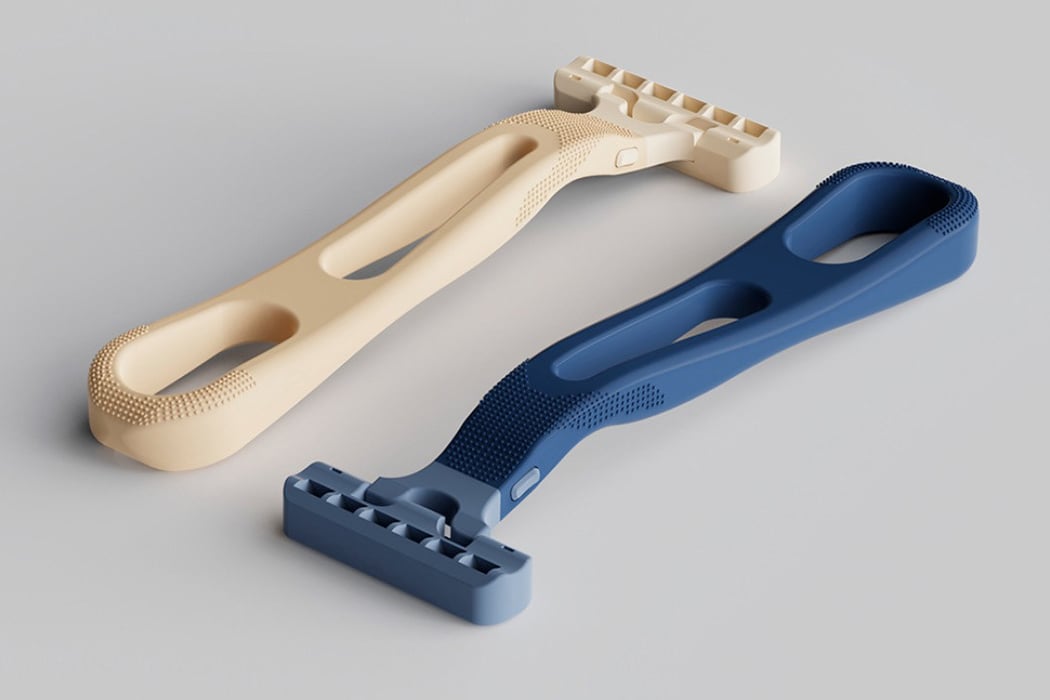
Disposable razors are made of plastic and contribute heavily to waste and pollution. In fact, as per the report Award Catalogue 2020 of BEYOND PLASTIC, about 5,000 billion disposable razors are used per year globally – can you imagine that many razors in front of you for a second? That is an island-worth of waste and we are constantly looking for designs that remake sustainable versions of daily objects so that we are a step closer to solving this problem. Oquari is a biodegradable razor with comes with interchangeable heads that aim to provide a sustainable alternative that can help reduce the burden on the environment.
The razor is made with PBS Bionelle as well as stainless steel blades as part of a regenerative approach and it degrades in aquatic environments. Its design is specifically geared at reducing manufacturing processes and facilitate the separation of its elements at the end of its life so that it becomes an accessible, attractive, and economical product without being recognized as “disposable” which the team refers to as ‘monstrous hybrid’ – a term coined by Michael Braungart and William McDonough for a product, component, or material that combines both technical and organic nutrients in a way that cannot be easily separated, thereby rendering it unable to be recycled or reused be either system. Most monstrous hybrids can only be thrown out and contribute to the waste stream and cannot be reused and therefore it is important to not view Oquari as a ‘disposable’ razor but rather as a sustainable alternative to the disposable razors.
“This is why we wanted to focus on a product that most people use while creating a dramatic environmental impact on our planet. Disposable razors, this kind of product has specifically a combination of plastics and elastomers. Which is rarely restore or recycled because of how difficult and expensive is. As part of our brief, we establish sustainable objectives that follow 7 of the 11 Rs of the R-Ladder: refuse the combination of monstrous hybrids, redesign better detachable pieces, rethink the concept of a disposable razor, reduce the use of plastic, reuse the razor for a long time, remanufacture materials for its use in other industries and recycle the package when disposed,” says the team,
Oquari creates a positive social-environmental impact because of the reusable handle that spreads awareness about the plastic waste problem. It encourages you to apply waste recollection strategies while generating more active learning and participation. Fairtrade is also ensured for users from socioeconomic sectors C and D because Oquari is made to be affordable. In addition, the constant consumption of blades ensures fixed income to the company. “Because our handle is reusable, raw material production and manufacturing costs are reduced. Likewise, waste decreases and benefits other industries by recycling discarded blades,” the trio elaborates. A sustainable lifestyle shouldn’t e a status symbol but rather an accessible choice so we can create a larger impact much faster.
Designer: Karla Valencia, Guillermo Miranda, and Erik Rodríguez
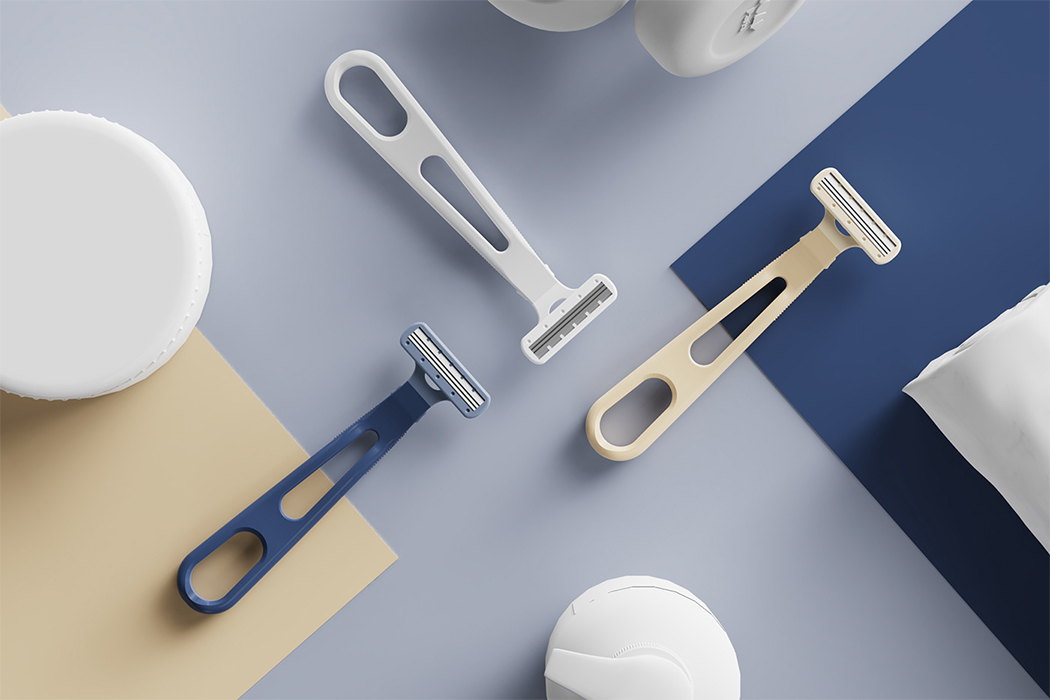
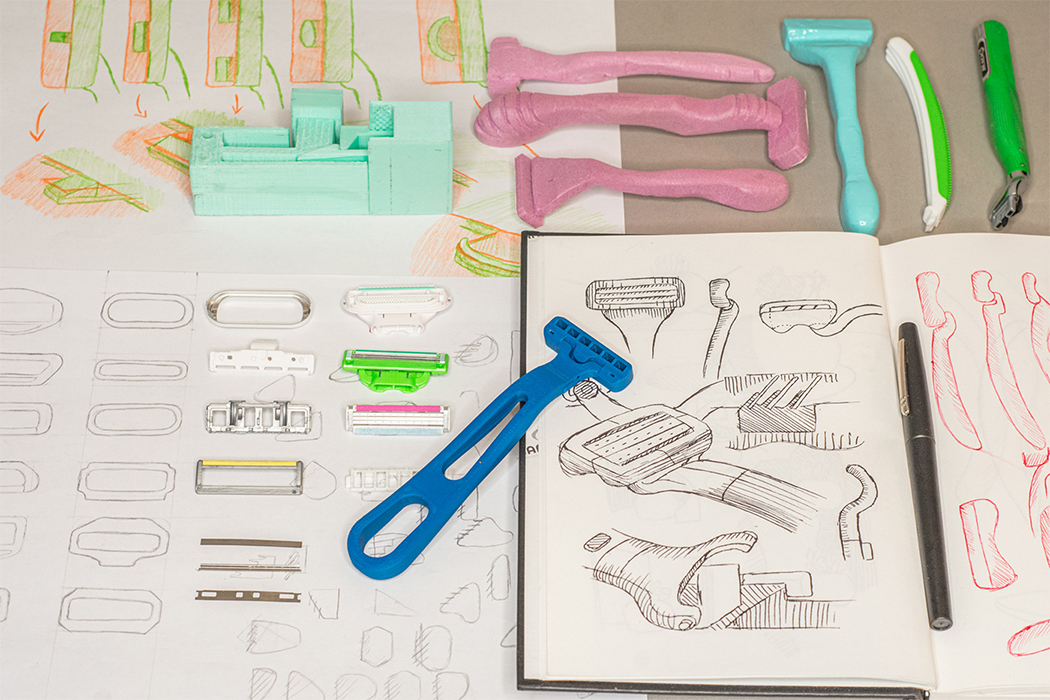
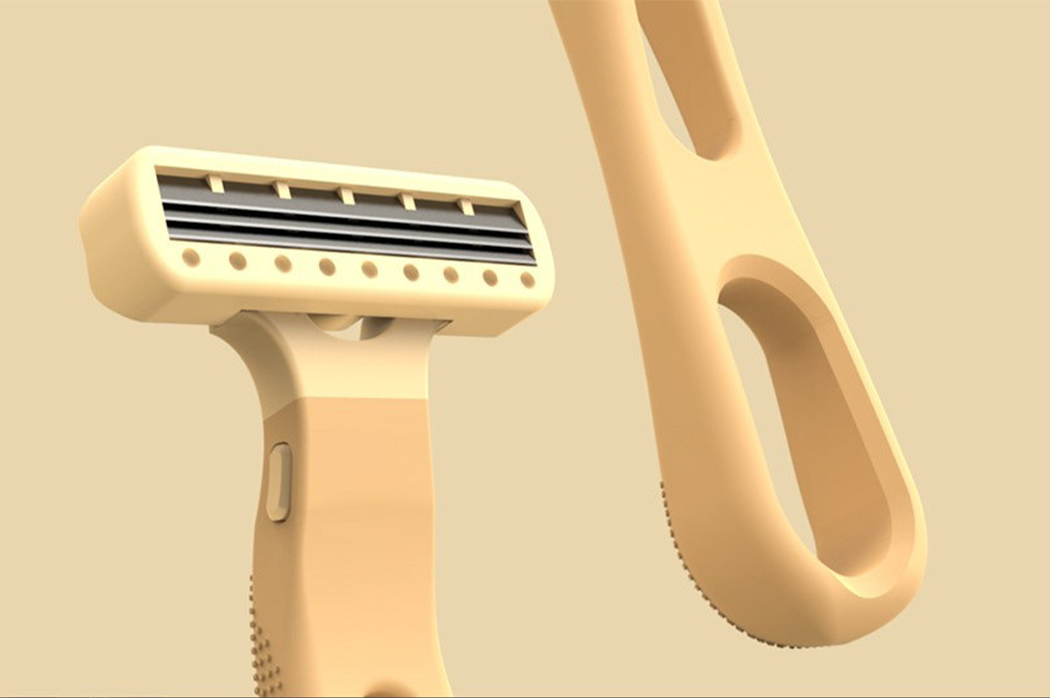
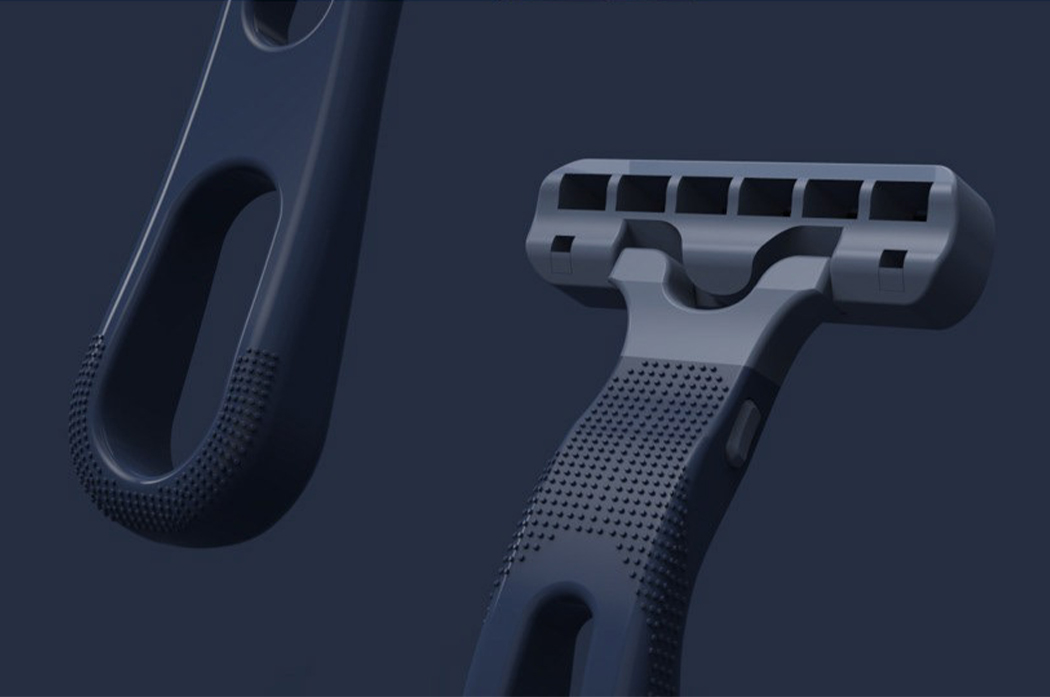
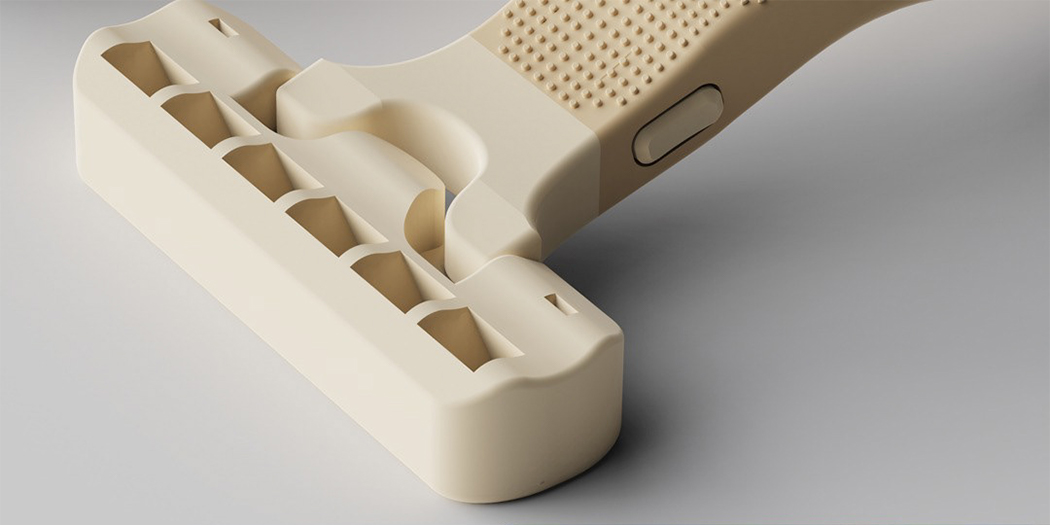
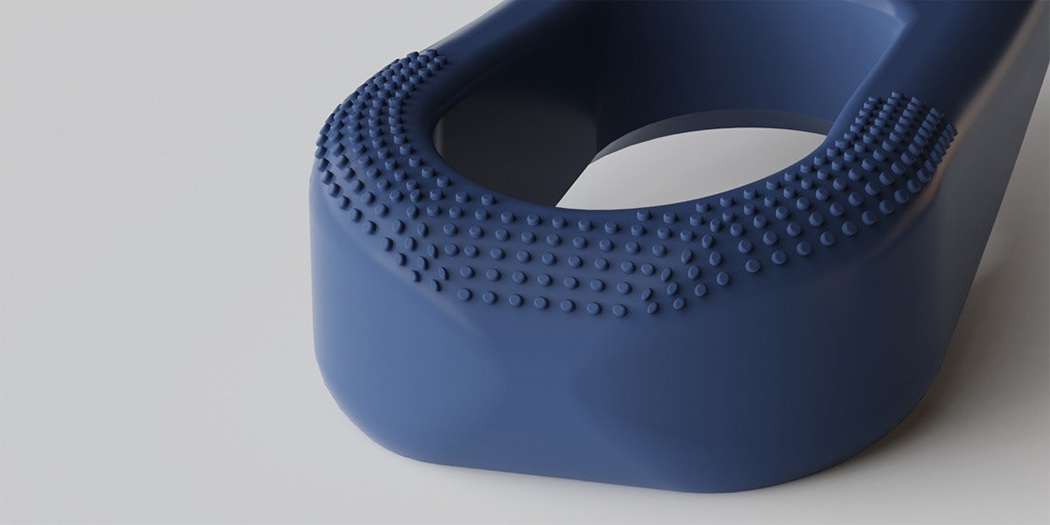

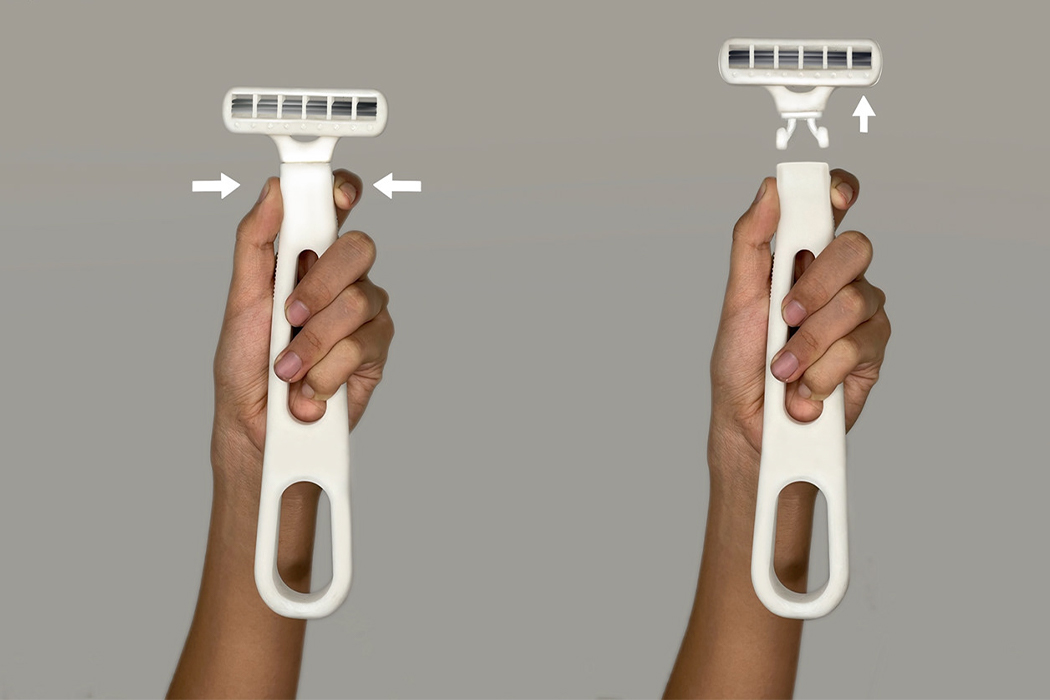
0 Commentaires